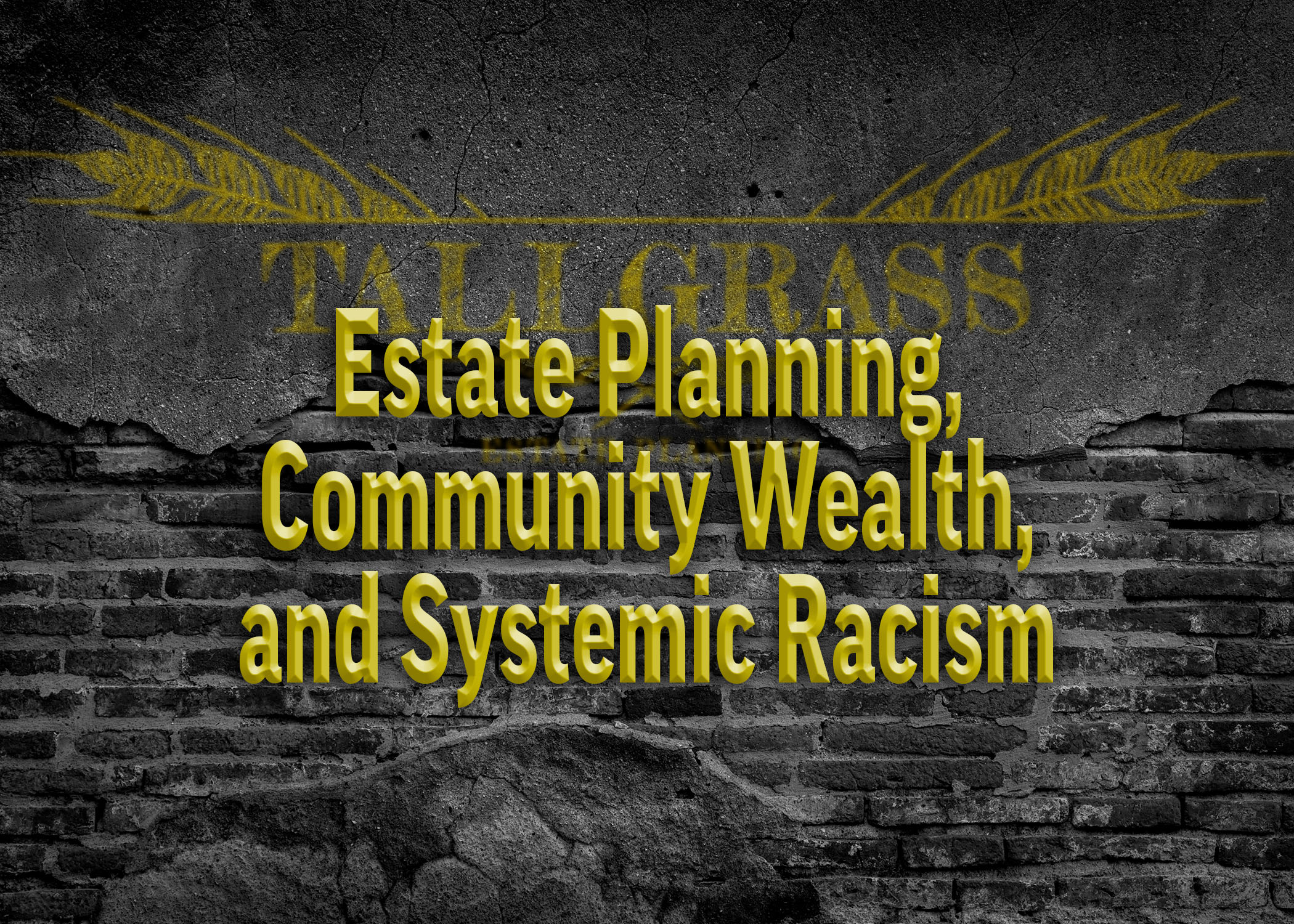
We hear it all the time. "I don’t need to do estate planning because I don’t have much.”
Here's the thing: It's wrong. Just wrong.
Large or small, castle or tiny house, you have an Estate. The size of your estate may affect your goals and which tools will best accomplish your goals, but everyone needs to do some form of planning for their estate. Sometimes when we say this to folks they respond “but I don’t have a lot of assets.” We’ve actually found that those with a relatively “small” estate often derive the greatest comparative value from estate planning.
To illustrate, here's the true story of “Mary," the deceased mother of a recent client.
In 1980, both of Mary’s parents died. Upon their passing, Mary was forced to probate her father’s intestate estate (meaning he did not have a will) and her mother’s will, paying $388 of the $588 in her mother’s estate towards attorney fees and court costs. Once the probate was completed, title to her parents’ home rested 3/4 with Mary and 1/4 with “Susan,” Mary’s step-sister.
For reasons not stated in the court record, but that can likely be inferred, Mary next filed an action to partition the property. An action to partition the property is essentially a request for the court to make joint owners of the property sole owners of their respective pieces of property. Here, it would make Mary sole owner of 3/4 of the property and Susan sole owner of 1/4 of the property. In addition to the cost of filing the court case, the court required Mary to pay independent commissioners to come and assess the value of the property, which was $8,000, and to determine if partitioning the property would diminish its overall value. A court will often, and did here, hesitate to partition property when doing so will decrease property value. In such a situation, the court will require the property to be sold and the proceeds divided. Mary had to buy 1/4 interest of her parents’ home back from her step-sister.
Is this value division what Mary’s parents would have chosen? (No.) Did Mary’s parents want her to have to pay for a probate and then to partition the land? (No.) Were there other tools available? (Yes, a Transfer on Death deed.) Could the will have been drafted so that a suit for partition wasn’t necessary? (Yes. For instance, “1/4 value to Susan, but if Susan and Mary cannot agree on the value, then the house will be sold and the proceeds divided.”)
Finally, after getting the property into her name, Mary died intestate (no estate plan) in 2004. With no will, a total of four children, three of them having predeceased her, and four grandchildren, the interest in Mary’s home is splintered once again and our client, Mary’s daughter “Tamara” will need to pay attorney fees and court costs to get any value out of the property.
Is this what Mary wanted? (Nope.) When Mary’s parents bought the house, did they intend for it to be a financial burden? (No.) Were they planning for their children and their children’s children to pay for two probates and a partition of the property? (Of course not!)
They were hoping to plant a seed that would grow into generational wealth for their family. And it could have worked out that way. But not this time.
Here's the moral of the story: Mary thought she "didn't have much," so she did no estate planning. The result was thousands of dollars spent in legal fees over the course of three decades for property worth less than all of the costs of transfer.
This creates generational debt, not generational wealth.
The slightest bit of planning can create the possibility that even the smallest estate can grow and benefit a family over time. And avoiding planning ensures that small estate never grow beyond just that.
Here's the stuff we always put at the end:
If you want to know more, we would love to talk with you about it. Best part, the conversation about how it could benefit you doesn't cost anything. Call us at (918) 770-8940 (in the Tulsa area) or (405) 358-3848 (in the OKC area) or send an email to firm@tallgrassestateplanning.com to set up a free consultation, either in person, video chat, or phone call.
Disclaimer: Reading this blog post does not create an attorney-client relationship, and it is not formal legal advice. This is for information purposes only. Your best bet, always, is to speak with an attorney about your questions, assets, concerns, and needs.

















